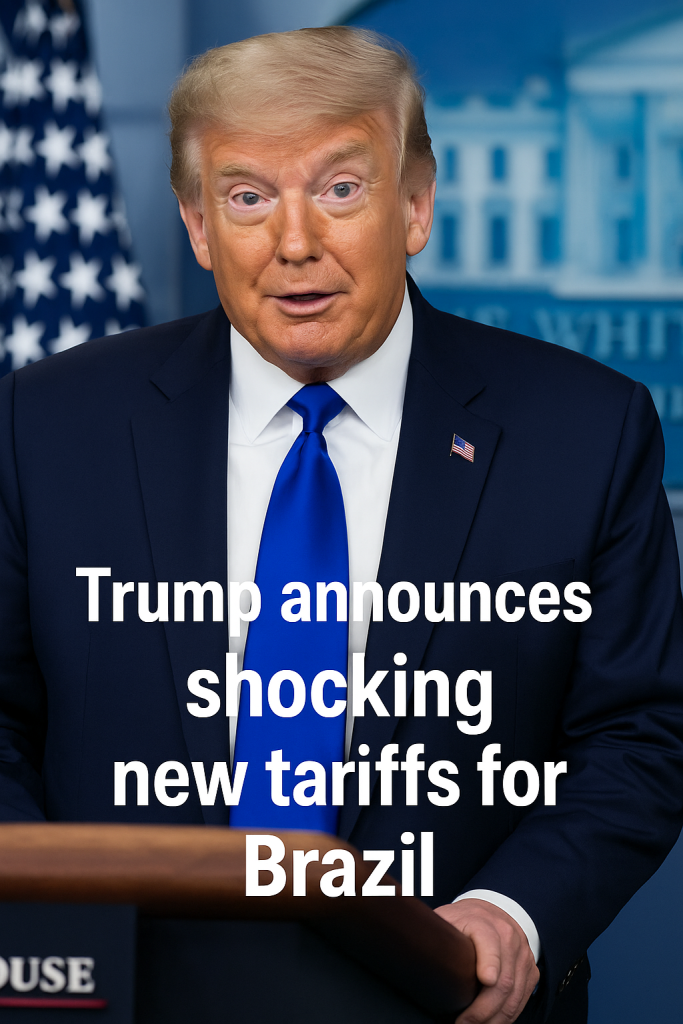In an unexpected move shaking up international trade, former President Donald Trump has announced a series of new tariffs targeting Brazilian imports. Experts warn these tariffs could affect the daily habits of over 150 million Americans, particularly when it comes to their morning routine.
The Tariff Details and Their Implications
Earlier this week, the announcement unveiled tariffs on a range of popular Brazilian goods, including coffee beans, fresh fruit, and dairy products — staples that many Americans reach for to kickstart their day. These tariffs are reportedly intended to protect U.S. agriculture and manufacturing companies from foreign competition, but critics caution about wide-reaching unintended consequences.
The impact on coffee lovers alone could be significant, as Brazil supplies the United States with roughly 40% of its coffee imports. With new tariffs potentially raising the cost of Brazilian coffee beans, consumers may see higher prices for their favorite brews. This is particularly notable given that over 150 million Americans consume coffee daily, making it one of the most widespread morning habits in the country.
Effects on Everyday Americans
Apart from coffee, tariffs on other Brazilian imports such as fresh fruits like oranges and avocados — common ingredients in many American breakfasts — could lead to price hikes or limited availability. Nutritionists and consumer advocacy groups have flagged the potential for these tariffs to disrupt healthy eating routines for millions.
One financial analyst explained, “Such tariffs tend to result in higher retail prices, as distributors and retailers pass on increased costs to consumers. When the goods affected are found in everyday grocery baskets nationwide, this is felt very quickly at the checkout.”
Broader Economic and Political Context
Though former President Trump is no longer in office, he remains an influential figure within certain political and economic circles. His announcement appears aligned with his consistent stance on reshaping trade policies to prioritize American industries. However, it remains to be seen how current government officials and trade partners will respond to these new measures.
The Brazilian government has already expressed concern, indicating potential retaliatory tariffs on American exports. This could escalate into a larger trade conflict affecting diverse sectors beyond morning staples, from automotive parts to technology components.
What This Means for Your Morning
For the average American, the most immediate effect could be a sticker shock at the grocery store or coffee shop. Consumers might notice smaller selections or higher prices for Brazilian-origin products they’ve come to depend on. Supply chain experts also caution that businesses sourcing these goods might switch their suppliers or reformulate products to mitigate tariff costs, which could influence the taste and quality of familiar morning favorites.
While it is still early days, one thing is clear: a seemingly distant international tariff decision now has the potential to ripple into the personal routines of millions across the United States. Whether it’s a morning cup of joe or fresh fruit for breakfast, the effects could soon be felt far beyond trade headlines.
Stay tuned as this story develops. The coming weeks will show whether these tariffs will be enacted in full, adjusted, or challenged in political and trade arenas.



